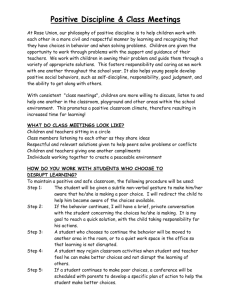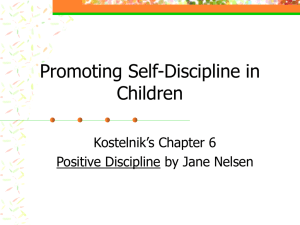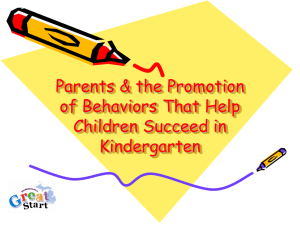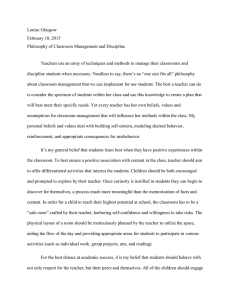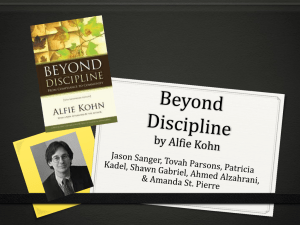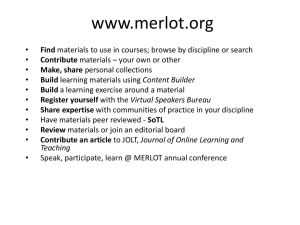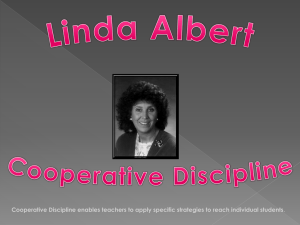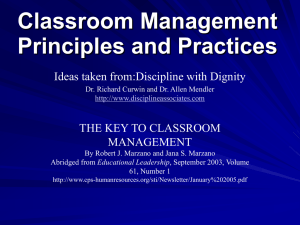File
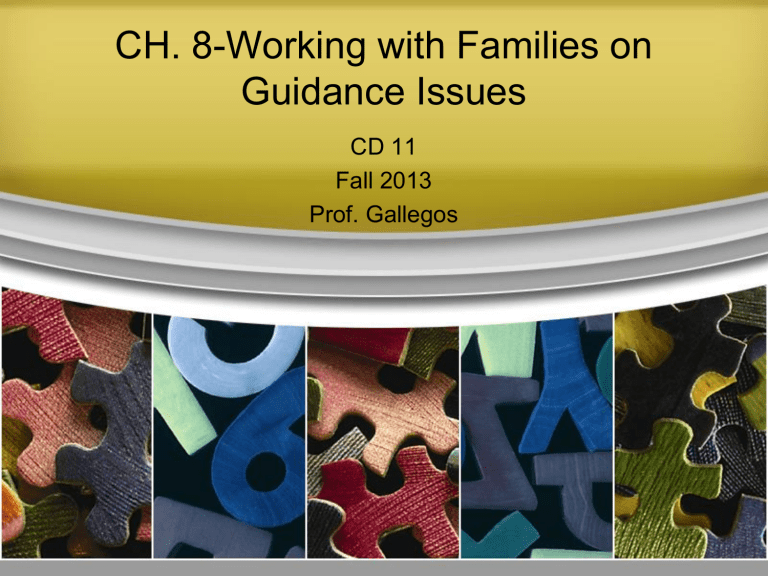
CH. 8-Working with Families on
Guidance Issues
CD 11
Fall 2013
Prof. Gallegos
Discipline
• Everyone has different ideas about basic human nature and their ideas influence their approached to dealing with what they deem unacceptable behavior in children.
• Discipline has a double meaning
• Discipline might mean punishment
• Discipline might mean guiding and managing behavior not through punishment but by attached to a more experienced partner.
• This partner is someone who is wiser, knows more and has lived longer than the child
• Eventually children internalize the master of the older partner and take charge of themselves.
• Development of self-discipline is the GOAL of discipline
Self-Discipline
• Self-discipline or “inner controls” all differ in their importance to different cultures.
• How adults help or hinder self-discipline
• Extended parenting
• Authority figures
• Type of Guidance
– Learning to focus and pay attention
– Learning about feelings
Problems with using Punishment to Teach
• Children who are punished for trying things out and making mistakes in the process can inhibited in their development of autonomy and initiative.
• The wanting to explore and experiment is reduced because of fear
• When punishments hurt the teachable moment is lost.
• Children are most open to learning when they have made a mistake. But if you are healing from a painful infliction the learning of that mistake is then hindered
Guidelines for Guiding Young
Children
• Learn about developmental stages
• Check communication to see whether it is clear.
• Trust children
• Trust yourself
• Build good relationships
Discipline as Preventing
Unacceptable Behavior
• Start with prevention: you know your child
1. Set up an appropriate environment
2. Let the environment provide the limits
3. Model appropriate behavior
4. Redirect energy
5. Provide physical control when needed.
6. Teach appropriate expression of Feelings
7. Meet Needs
Guidance as Responding to
Unacceptable Behavior
8. Give Feedback
9. Allow children to experience the consequences of their actions
10. Use Time-Out appropriately
11. Reward Desired Behavior
12. Ignore misbehavior that is designed to attract attention
13. Teach prosocial behavior
14. Meet needs

